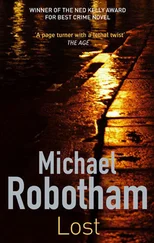White froth clings to his top lip. “There’s something else. The boy made an earlier North Sea crossing. He was picked up and sent back to the Netherlands within twenty-four hours.”
“Guess he tried again.”
“Second time unlucky.”
The lawyer’s office is on Prinsengracht in a four-story building that deviates from the vertical by a degree or two, leaning out over the brick-paved street. A high arched doorway leads to a narrow courtyard where an old woman is swabbing flagstones with a mop and bucket. She points to the stairs.
On the first floor we enter a waiting room full of North Africans, many with children. A young man looks up from a desk, pushing his Harry Potter glasses higher up his nose. We don’t have an appointment. He flicks through the pages of a daily schedule.
At that moment a door opens behind him and a Nigerian woman appears, dressed in a voluminous floral dress. A young girl clings to her hand and a baby is asleep on her shoulder.
For a moment I don’t see anyone else. Then a small woman emerges, as if appearing from the folds of the Nigerian’s dress.
“I’ll send you a copy of the papers once I’ve lodged the appeal,” she says. “You must let me know if you change your address.”
Dressed in a long-sleeved cotton blouse, black cardigan and gray trousers, she looks very lawyerly and businesslike, despite her diminutive stature. Smiling absently at me as though we might have met, she glances at Ruiz and shudders.
“Mrs. Caspar, excuse this interruption. Could we have a word?”
She laughs. “How very English that sounds. Just the one word? I’m almost tempted to say yes just to hear which one you might choose.” The skin around her eyes wrinkles like peach stones. “I’m very busy today. You’ll have to wait until—”
She stops in mid-sentence. I am holding up a photograph of Samira. “Her brother is dead. We have to find her.”
Mrs. Caspar holds her office door open until we follow her inside. The room is almost square, with highly polished wood floors. The house has belonged to her family for generations, she explains. The law practice was her grandfather’s and then her father’s.
Despite volunteering this information, Mrs. Caspar has a lawyer’s natural caution.
“You don’t look like a police officer,” she says to me. “I thought you might require my services.” She turns her attention to Ruiz. “ You , however, look exactly like a policeman.”
“Not anymore.”
“Tell me about Hassan,” she says, turning back to me. “What happened to him?”
“When did you last see him?”
“Eleven months ago.”
I describe the discovery of his body in the truck and how my name and address were sewn into his clothes. Turning her face to the window, Mrs. Caspar might be close to tears, but I doubt if such a woman would let strangers see her emotions.
“Why would he have your name?”
“I don’t know. I was hoping you could tell me.”
She shakes her head.
“I am trying to find Samira.”
“Why?”
How do I answer this? I plunge straight in. “I think a friend of mine who couldn’t have children tried to buy a baby in Amsterdam. I think she met Samira.”
“Samira doesn’t have a baby.”
“No, but she has a womb.”
Mrs. Caspar looks at me incredulously. “A Muslim girl doesn’t rent her womb. You must be mistaken.”
The statement has the bluntness and certainty of fact or dogma. She crosses the office and opens a filing cabinet, taking out a folder. Sitting at her desk, she scans the contents.
“My government does not welcome asylum seekers. They have made it more and more difficult for them. We even have a minister of immigration who claims that only 20 percent of applicants are ‘real refugees’—the rest are liars and frauds.
“Unfortunately, legitimate asylum seekers are being demonized. They are treated like economic refugees, roaming between countries looking for someone to take them in.”
The bitterness in her voice vibrates her tiny frame.
“Samira and Hassan had no papers when they arrived. The IND claimed they destroyed them on purpose. They didn’t believe Samira was a minor. She looked closer to twelve than twenty, but they sent her for tests.”
“Tests?”
“An age evaluation test. They x-rayed her collarbone, which is supposed to establish if someone is older or younger than twenty. Hassan had his wrist x-rayed. A report was prepared by Harry van der Pas, a physical anthropologist at Tilburg University.
“It backfired on them. Samira appeared even younger. Poor diet and malnutrition had stunted her growth. They gave them both temporary visas. They could stay, but only until further checks were done.”
Mrs. Caspar turns a page in the folder.
“Nowadays the policy is to return underage asylum seekers to their own country. Hassan and Samira had no family. Afghanistan can scarcely feed its own people. Kabul is a city of widows and orphans.”
She slides a page of notes toward me—a family history. “They were orphans. Both spoke English. Their mother was educated at Delhi University. She worked as a translator for a publishing company until the Taliban took over.”
I look at the notes. Samira was born in 1987 during the Soviet occupation of Afghanistan. She was two years old when the Soviets left and ten when the Taliban arrived.
“And their father?”
“A factory owner.”
I remember Hassan’s photograph.
“They made fireworks,” explains Mrs. Caspar. “The Taliban closed the factory down. Fireworks were forbidden. The family fled to Pakistan and lived in a refugee camp. Their mother died of dysentery. Hamid Khan struggled to raise his children. When he grew tired of living like a beggar in a foreign country, he took his family back to Kabul. He was dead within six months.”
“What happened?”
“Samira and Hassan witnessed his execution. A teenager with a Kalashnikov made him kneel on the floor of their apartment and shot him in the back of the head. They threw his body from a window into the street and wouldn’t let his children collect it for eight days, by which time the dogs had picked it over.”
Her voice is thick with sadness. “There is an Afghan proverb. I heard Samira say it: To an ant colony dew is a flood.”
It doesn’t need any further explanation.
“When did you last see her?”
“Mid-January. She surprised me on my birthday. She made me fireworks. I don’t know how she managed to buy the chemicals and powder. I had never seen anything so beautiful.”
“What about their application for asylum?”
The lawyer produces another letter. “Eighteen is a very important age for an asylum seeker in this country. Once you reach this age you are treated as an adult. Samira’s temporary residency was revoked. She was deemed to be old enough to look after Hassan, so his visa was also canceled. Both were denied asylum and told they had to leave.
“I lodged an appeal, of course, but I couldn’t prevent them being forced onto the street. They had to leave the campus at Deelen. Like a lot of young people denied asylum, they chose to run rather than wait to be deported.”
“Where?”
She opens her arms, palms upward.
“How can we find Samira?”
“You can’t.”
“I have to try. Did she have any friends at the campus?”
“She mentioned a Serbian girl. I don’t know her name.”
“Is she still there?”
“No. She was either deported or she ran away.”
Mrs. Caspar looks at Ruiz and back to me. The future is mapped out in the lines on her face. It is a difficult journey.
“I have a friend—a retired policeman like you, Mr. Ruiz. He has spent half his life working in the red light district. He knows everyone—the prostitutes, pimps, dealers and drug addicts. Walls have mice and mice have ears. He can hear what the mice are saying.”
Читать дальше












